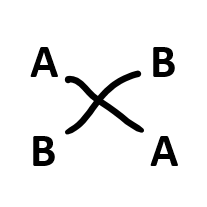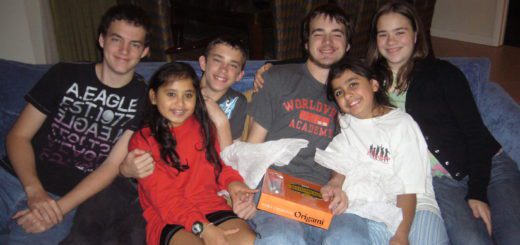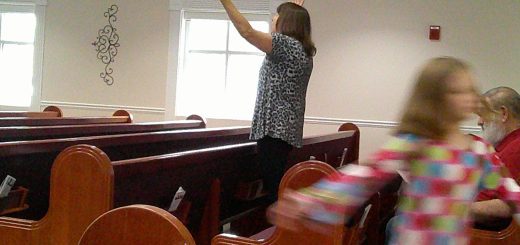Lettuce Wrap (Psalm 75)
October 23rd, 2022 – Lettuce Wrap (Psalm 75)
Good morning beautiful church family, whether present in this room or online! Today we are continuing our “Psalms of Thanksgiving and Gratitude” series. We are on our way to becoming thanksgiving and gratitude mystics as we become more present with God and allow God’s presence to transform us into more loving persons in the world. We are contemplating more deeply what it means to live lives saturated with thanksgiving and gratitude.
I used to do this thing with my kids where one of them would be the teacher and they’d have to give instructions on something really simple like “How to draw a cat.” The rest of us would follow each instruction super literally, so when the instructor said, “draw two ears,” someone would invariably draw a couple of corn cobs. Or in the absence of placement instructions, the ears would end up attached to the wrong part of the cat. These attempts always ended up being hilarious and ridiculous and were also a great way to learn how to communicate with clarity and how to offer step-by-step processes. It’s good to think through how to do what we do and why we do what we do. One of the ways we know we understand something is the ability to explain it to someone else.
Chiasmus:


Before we read our Psalm for today, I want to introduce us to a literary technique commonly found in ancient literature (including Homer’s Iliad and Odyssey) that also crops up in the Bible in both the Old and New Testaments. It’s a wonderfully symmetric structure known as reverse parallelism or chiasmus, from a Greek word meaning “to shape like the letter X.” You can see that part A, which comes first (on the top left), is also last (on the bottom right), and part B, which comes after part A (on the top right), also comes before part A (on the bottom left).
The children’s song, “Twinkle, Twinkle, Little Star,” follows this structure musically. Follow this pattern with me starting with the A on the top left.
- 1st Part A – “Twinkle, twinkle, little star, how I wonder, what you are!”
- 1st Part B – “Up above the world so high,”
- 2nd Part B – “like a diamond in the sky.”
- 2nd Part A – “Twinkle, twinkle, little star, how I wonder, what you are!”
Chiasmus was used in the ancient world to articulate the balance of order within the text and to create two sides of an idea for the listener to consider, urging the listener to favor one side. Although both parts of the song are important, chiasmus says that the emphasis is on “Up above the world so high, like a diamond in the sky.”
I’ve come up with a simple analogy that will hopefully help us understand chiasmus and put into practice what we learn today.
Making a sandwich:
The ideal situation:
- Part A is two slices of bread, or two halves of a roll or bagel, which serve as a container or wrapper.
- Part B is some kind of filling consisting of other ingredients that go in between those two parts.
How to:
- Start with one of the bread pieces.
- Spread, place, layer, pour, and sprinkle fillings as desired.
- Complete the sandwich by placing the other bread piece on top.
- Together, the bread and the fillings comprise a sandwich, and our satisfaction is increased by combining these two main elements.
What can go wrong:
- The bread alone would not be considered a sandwich; the fillings alone would not be considered a sandwich; both elements are needed.
- Trying to eat a sandwich vertically might distort the integrity of the sandwich because of how our teeth are arranged in our mouths.
- Putting way too much filling in between the pieces of bread might cause the sandwich to explode.
You get the picture – the bread encloses the filling, and although both are essential, it’s the middle parts, part B, that are being emphasized. Now we’re ready to read today’s Psalm, provided in the NRSV on your handout:
Psalm 75 (NRSV):
1 We give thanks to you, O God; we give thanks; your name is near.
People tell of your wondrous deeds.
2 At the set time that I appoint, I will judge with equity. 3 When the earth totters, with all its inhabitants, it is I who keep its pillars steady. Selah
4 I say to the boastful, “Do not boast,” and to the wicked, “Do not lift up your horn; 5 do not lift up your horn on high or speak with insolent neck.”
6 For not from the east or from the west and not from the wilderness comes lifting up, 7 but it is God who executes judgment, putting down one and lifting up another. 8 For in the hand of the Lord there is a cup with foaming wine, well mixed; he will pour a draught from it, and all the wicked of the earth shall drain it down to the dregs.
9 But I will rejoice forever; I will sing praises to the God of Jacob. 10 All the horns of the wicked I will cut off, but the horns of the righteous shall be exalted.
The Psalmist uses chiasmus here with three portions describing something God does and three portions calling us to do something. Using our sandwich analogy, the bread would be the three “let us” portions. And the filling would be the three “God” portions. You may want to label each of the portions on your handout as follows:
- A – Let us sing praises to God (v. 1a); Let us proclaim God’s wondrous works (v. 1b)
- B – God governs with goodness (v. 2-3); God warns the wayward (v. 4-5); God regulates and restores (v. 6-8)
- A – Let us perpetually proclaim God’s wondrous works and sing praises to God (v. 9-10)
I want to suggest today that Psalm 75’s chiasmus is a great prayer model. In the sections labeled “A”, we can see that in every season of life, in every situation, in every relationship, we can start and end by proclaiming God’s wondrous works and singing praises to God. In the sections labeled “B”, in the middle of it all, we can remember who God is. God is the one who governs with goodness. God is the one who warns the wayward. God is the one who regulates and restores, no matter how chaotic or uncertain things appear. We don’t know what kind of cup God will give us to drink in this life. It will undoubtedly be a mixture of happiness and misery, rain and drought, sunshine and storms, joy and sorrow, miracles and calamities. We aren’t promised explanations or forewarnings on these kinds of things. But the most important thing here is to focus on God – who He is and where He is. We are promised that God is good, and God is with us through it all. Matthew 28:20b (NRSV) – “And remember, I am with you always, to the end of the age.” Hebrews 13:5b-6 (NRSV) – “‘I will never leave you or forsake you.’ So we can say with confidence, ‘The Lord is my helper; I will not be afraid. What can anyone do to me?’”
It is from that place of absolute assurance that God is good and God is with us that we are reminded to proclaim His wondrous works and to perpetually sing praises to Him. We will never run out of things to proclaim about God or praise God for, because God’s goodness is lavished upon us all constantly and without limit.
Maybe it’s helpful to think of our Psalm 75 sandwich as a lettuce wrap, as in “let us wrap our hearts, minds, voices, lives, proclamations, and songs around God, who is good and who is with us.”
That is the simplicity of Psalm 75. It is a poem, a song, written and designed to lift the hearts of the singers from despair to hope, from darkness to light, from dejection to joy, from death to life. I encourage us to sing songs of thanksgiving and gratitude springing from Psalm 75, at all times, but especially in times of despair, darkness, dejection, or death. The Lord is good and the Lord is with us! Psalm 75 is a model for us to follow in learning to live a life of love, as Jesus did.
It’s important to note that the Psalms are not meant to be just read in our heads; they are meant to be sung regularly by the community of faith. As we gather each Sunday at Liberty Vineyard, we intentionally spend a good chunk of our services in expressing our thanksgiving and gratitude to God, through singing worship songs, through participation in Communion, through praying together for one another and for others to the very ends of the earth, and through sharing testimonies or God-stories with each other, as we will be doing again next Sunday. As we practice giving God thanks and offering gratitude to Him, it helps our focus to shift away from thinking too much about ourselves to thinking more about others.
A warning about self-love:
In July I received the following note from Milorad, a precious Balkan brother in Christ: “I just wanted to reach out to you and thank you for the Elder Thaddeus audiobook you posted on YouTube. I listen to it all the time. It’s so holy. And was wondering if you would be interested in making another audiobook called ‘The Mystical Marriage: Spiritual Life according to St. Maximos the Confessor’?” I complied with his request, and my new friend, Milorad, has now introduced me to several other friends, including Maximos the Confessor, a 7th century Christian theologian and scholar. So whenever you hear me say, “Maximos” or “Maximus”, I’m not talking about “Gladiator” but I am talking about one of the Fathers of the Church in the first millennium Anno Domini (AD). It is important to note that over a thousand years passed after Christ’s incarnation before the two biggest splits occurred in the body of Christ – the 11th century Great Schism and the 16th century Protestant Reformation. OK, so now you know who I’m talking about, and I am forever grateful to my friend Milorad for introducing me to Maximos the Confessor and his deeply impactful writings.
We are studying the Psalms in this series in order to better live a life of love by growing in thanksgiving and gratitude to God. Maximos says that the one thing that can drag us down from living a life of love, as Jesus did, is self-love, which is a turning away from God and others and a turning towards self. Self-love can take whatever is good and beautiful and noble in the eyes of God and reduce it to something wretched, base, and utterly lost. Self-love is like a film that covers the eyes of our heart and prevents us from seeing the world clearly, because when we are turned towards self, everything is distorted through the lens of the ego.
Just as God is the beginning and principle of every good, so too is self-love the beginning and principle of everything that is bad. Self-love is the reason why Satan fell. It’s precisely the thing that demons tempt us to do, especially when we are too BLASTED, as in, “this blasted pen leaked all over my new shirt.” Thank you, John, for introducing me to a new awesome acronym! We have a propensity to do much worse damage than a leaky pen to ourselves and others when we get too:
- Bored
- Lonely
- Angry or Anxious
- Sad or Stressed
- Tired
- Empty
- Detached or Disconnected
We all experience these things at times. None of them is inherently evil, as they are each part of our human condition. But danger arises when we become too bored, too lonely, too angry, too anxious, too sad, too stressed, too tired, too empty, too detached, or too disconnected. Sometimes it feels like the whole world is struggling in these ways. It’s when we find ourselves out of balance in any of these ways that we are tempted to turn away from God, turn away from others, and turn only towards ourselves. This is what it means to fall into self-love. Maximos says we are absolutely safe only when we throw off self-love.
How can we throw off self-love? I can think of two key strategies. The first is to take preventive measures. We can develop habits of checking our emotional pulse, so to speak. We can guard against turning towards self by paying attention to our thoughts, attitudes, words, actions, and reactions. There is a Christian practice known as Examination of Conscience, or Examen, that dates back to the New Testament church. Bernard of Clairvaux, a 12th century leader, gave this advice to each of his followers: “As a searching investigator of the integrity of your own conduct, submit your life to a daily examination. Consider carefully what progress you have made or what ground you have lost. Strive to know yourself. Place all your faults before your eyes. Come face to face with yourself, as though you were another person, and then weep for your faults.”
The second strategy in throwing off self-love is to choose to do life in healthy, interdependent community with others. It is precisely when we are alone, especially emotionally, that we are the most vulnerable to temptations. When we do get caught in a trap, our interdependent community will help us to get the help that we need to live in freedom. It is so helpful to me when someone asks me a caring yet clarifying question like, “How are you doing? You don’t seem yourself lately.” We simply cannot see everything clearly ourselves. We need each other! Romans 12:3-5 (NRSV) – “By the grace given to me I say to everyone among you not to think of yourself more highly than you ought to think but to think with sober judgment, each according to the measure of faith that God has assigned. For as in one body we have many members and not all the members have the same function, so we, who are many, are one body in Christ, and individually we are members one of another.”
Bringing this all together, let us remember always to let us wrap our hearts, minds, voices, lives, proclamations, and songs around God, who is good and who is with us. God invites us continually into the Trinity, the eternal community of love, and sends us forth to live a life of love, as Jesus did. As we remember that God is good and God is with us, and as we turn our gaze toward God, He rejuvenates our vision, restores our desires, and revives us with a genuine and generous love for Him and for others.
In every season of life, in every situation, and especially in every relationship, let us start and end by proclaiming God’s wondrous works and singing praises to God. In the middle of it all, let us remember that the Lord is good, and He is with us. Let us focus on who God is, remembering to proclaim His wondrous works and perpetually singing praises to Him.
We are going to close by praying a responsive prayer together which I’ve crafted in the style of Psalm 75. I will read the italicized portions, and we will together all read the bold words.
A Litany of Thanksgiving and Gratitude
We give thanks to you, O God; we give thanks.
Your perpetual deeds of grace and majesty assure us that you are always with us, even unto the end of the world.
You are the mighty creator, God Most High,
You are the God who sees us, our shield, our strong tower, our shepherd,
You are God Almighty, the living God, the God who is here,
You are our provider, our dwelling place, our peace,
You are the Lord who heals, the Lord our banner, the Lord of hosts,
You are our rock, our refuge, our righteousness,
You are our Father, our King!
We thank You that at Your appointed time You govern with goodness.
We thank You that in Your love and kindness You warn the wayward.
We thank you that in the chaos and confusion, You regulate and restore.
We will rejoice forever; we will perpetually sing praises to the one true God.
Amen!




